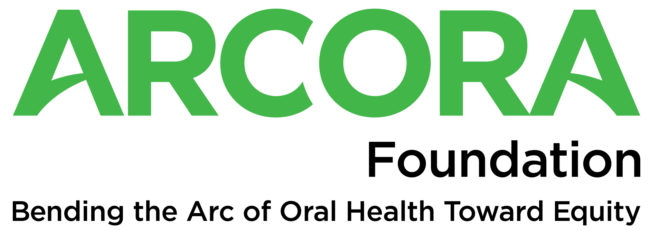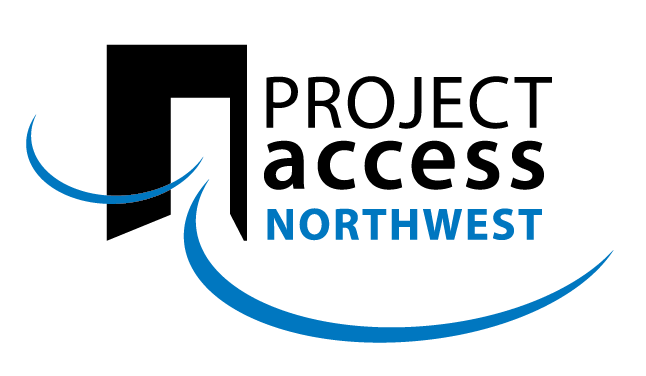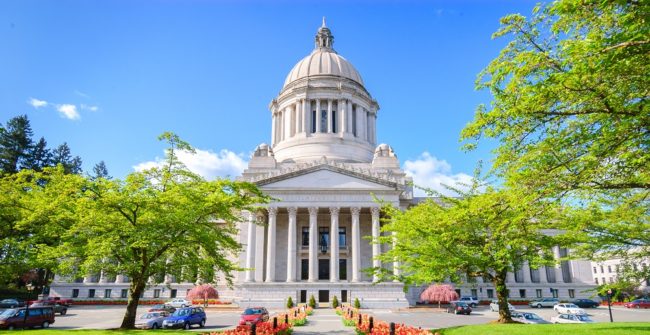
Una nueva asociación ayuda a los residentes de bajo ingreso de Washington a acceder a atención dental esencial y a atención integral.
SEATTLE: Los residentes de Washington de bajo ingreso o sin seguro que necesitan atención dental ahora tienen más opciones. DentistLink, un servicio gratuito de remisión dental en Washington para personas con Apple Health (Medicaid) o que no tienen seguro, se asoció con Project Access Northwest para ofrecer atención dental y de otro tipo a cada vez más personas. Project Access Northwest es una organización sin fines de lucro que conecta a las personas de bajo ingreso con los servicios esenciales de atención médica.
Cuando llame o envíe un mensaje a DentistLink para obtener una remisión, se comunicará con un equipo que tiene amplia experiencia en conectar a las personas con los servicios que necesitan. Además de atención dental, también encontrará un sistema más completo de asistencia, que incluye lo siguiente:
- Atención médica y de salud conductual.
- Recursos para acceder a transporte para trasladarse a las citas.
- Servicios de interpretación telefónica.
DentistLink, una asociación público-privada financiada completamente por Arcora Foundation y la Autoridad del Cuidado de la Salud (Health Care Authority, HCA) del estado de Washington, se asoció con Project Access Northwest para ofrecer una variedad más amplia de opciones de remisión.
“Nuestra emocionante y nueva asociación con Project Access Northwest hace que DentistLink crezca como una herramienta esencial para abordar las necesidades únicas de nuestras poblaciones prioritarias en todo el estado”, dijo Vanetta Abdellatif, presidenta y directora ejecutiva de Arcora. “Project Access Northwest aporta conocimientos y experiencia en comunidades de todo el estado que han sido desatendidas, como las comunidades negras, indígenas y de personas de color, lo que nos permite avanzar hacia nuestro objetivo de acceso equitativo a servicios de salud bucal y general para todas las personas”.
En todo el estado de Washington, las disparidades en salud bucal persisten principalmente por la raza o etnicidad, el idioma hablado en el hogar, la geografía y los ingresos. La disparidad en salud son las diferencias específicas en los resultados de salud y la atención médica entre grupos poblacionales que están arraigadas en las desventajas sociales, económicas y ambientales. En 2023, por ejemplo, el 61 % de las personas adultas de bajo ingreso de Washington (que ganan menos de $50,000 al año) no visitaron a un dentista.
“Durante casi 20 años, Project Access Northwest trabajó para abordar las necesidades no satisfechas de las personas que enfrentan barreras para acceder a la atención”, dijo Gary Renville, presidente y director ejecutivo de Project Access Northwest. “La asociación de Arcora y HCA en DentistLink es una continuación de esa misión de conectar de manera efectiva y empática a más personas con la atención cuando, donde y como la necesitan”.
La demanda de DentistLink sigue en crecimiento. En 2018, el servicio obtuvo 12,000 solicitudes de usuarios. En 2023, ese número aumentó a más de 65,000. Para 2024, DentistLink está en camino de alcanzar más de 76,000 solicitudes de usuarios, con más de 38,000 en los primeros 6 meses del año.
“Agradezco mucho a la persona que me dio su número. Pude concertar una cita con [un proveedor]”, dijo un nuevo usuario de DentistLink. No mencionamos su nombre para proteger su privacidad.
“No lograba nada por mi cuenta. Gracias por su servicio”.
“Project Access Northwest es el socio ideal para posicionar a DentistLink, y satisfacer las necesidades actuales y futuras”, dijo la Directora Dental de HCA, Sarah Vander Beek. “Este equipo experimentado tiene una trayectoria exitosa conectando a los pacientes con la atención y ofreciendo el apoyo personalizado necesario para asegurarse de que asistan a sus citas”.
No hubo ningún cambio en la forma en que se accede a DentistLink. Tiene 3 opciones:
- Teléfono para llamadas o mensajes de texto: 844-888-5465, de lunes a viernes, de 9 a.m. a 5 p.m.
- Búsqueda en línea: Busque atención dental cerca de usted en cualquier momento.
- Formulario en línea: Responda algunas preguntas y lo conectaremos con el servicio.
Acerca de la Fundación Arcora

La Fundación Arcora promueve la salud bucal y la equidad en todo el estado de Washington. Somos la base
de Delta Dental of Washington y la fundación más grande del estado dedicada a esta causa. Lideramos con equidad nuestro trabajo para lograr una buena salud bucal para todos. A través de asociaciones, centramos nuestras
prioridades de prevención y acceso en las comunidades raciales y étnicas, específicamente las comunidades negras, indígenas y de color, donde son significativas las disparidades en las enfermedades bucales y el acceso a la
atención. Nuestra misión está en nuestro nombre: trazar un arco de la salud oral hacia la equidad.
Acerca de la Autoridad de Cuidado de la Salud del Estado de Washington

La Autoridad de Cuidado de la Salud del Estado de Washington (HCA), el mayor comprador de atención médica del estado y su autoridad en salud conductual, es líder en garantizar que los residentes de Washington tengan la oportunidad de tener la mejor salud posible.
Estos son los pilares de nuestro trabajo: Apple Health (Medicaid); los programas de la Junta de Beneficios par Empleados Públicos (Public Employees Benefits Board, PEBB) y de la Junta de Beneficios para Empleados Escolares (School Employees Benefits Board, SEBB); y la salud y rehabilitación conductual. Al trabajar con estos pilares, la HCA compra atención médica, que incluye tratamiento de salud conductual para más de 2700 millones de residentes de Washington, y ofrece prevención en salud conductual, atención de situaciones de crisis y apoyos para la rehabilitación a todos los residentes de Washington.
Acerca de Project Access Northwest

Project Access Northwest, una organización sin fines de lucro 501(c)(3) de renombre, fundada en 2006, conecta a personas vulnerables y sin seguro en el estado de Washington con acceso a una amplia gama de atención médica especializada, que incluye servicios dentales y de salud conductual. A través de una red de casi 2,500 proveedores de atención médica voluntarios y sistemas hospitalarios regionales, la organización facilitó más de 65,000 citas individuales. Con el apoyo de coordinadores de atención, el 97 % de los clientes asisten a sus citas programadas.
El programa innovador de Project Access Northwest mejora el acceso a la atención médica, aborda los factores sociales críticos que afectan la salud a través de servicios integrales, empodera a las personas para alcanzar sus objetivos de salud, contribuye al desarrollo de la fuerza laboral y le hace ahorrar millones de dólares anualmente al sistema de atención médica.
###
We can’t do this work without you. Advancing oral health requires public and private partnerships, policy advocacy, and funding. Join us in our mission to bend the arc of oral health toward equity. Learn more and contact us at info@arcorafoundation.org.


